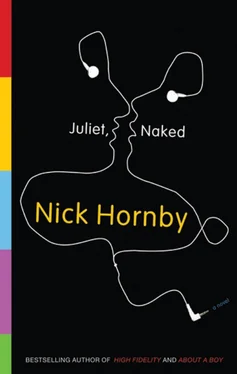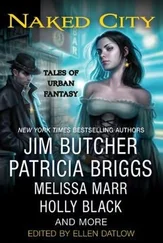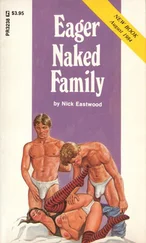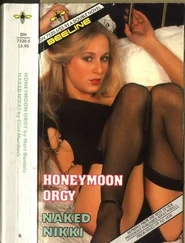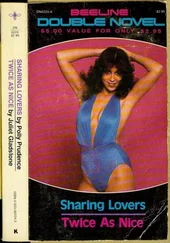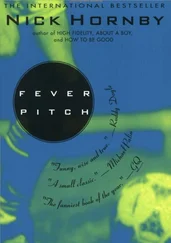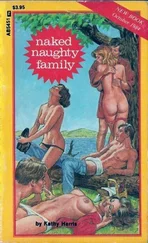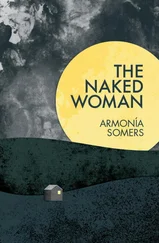He was right: it sounded fun. Who wanted to be in a place that prided itself on its lack of ambition, its pig-headed delight in its own plainness?
“Anyway,” said Jackson. “I have to see Mom, and my friends, and…”
And even then Annie hoped for some clinching argument from Tucker, as if she were watching a courtroom drama, and Jackson was the slow-witted and obstructive juror. But he just put his arm on his son’s shoulder and told him not to worry, and Annie gave another inappropriate laugh, just to show that nothing was serious and everything was funny and it didn’t matter that Christmas was nearly over. She was nervous now.
Tucker was worried for Annie when they walked into the cold and ominously empty museum, but then he remembered that she was the host, and she had to be there first. And they didn’t have to wait very long before people started turning up; late wasn’t a fashion option in Gooleness, apparently. Before long, the room was full of town councillors and Friends of the Museum and proud owners of shark pieces, all of whom seemed to have taken the view that the later you turned up, the narrower the choice of sandwiches and potato chips.
Once upon a time, Tucker hated going to parties because he couldn’t introduce himself without people making some kind of a fuss when he told them his name. It turned out to be the same at this party, except the people who made the fuss were people who’d apparently never heard of him.
“Tucker Crowe?” said Terry Jackson, the councillor who owned half the exhibition. “ The Tucker Crowe?”
Terry Jackson was probably in his sixties, and he had a weird gray hairdo, and Tucker was surprised that his name had any currency in weird-gray-hairdo circles. But then Terry gave Annie a big wink, and Annie rolled her eyes and looked embarrassed, and Tucker understood that something else was going on.
“Annie wanted you to be the special guest tonight. But then I pointed out that nobody knew who the bloody hell you were. What was your big hit, then? Just kidding.” He patted Tucker on the back mirthfully. “But you really are from America?”
“I really am.”
“Well, then,” said Terry, consolingly. “We don’t get many American visitors to Gooleness. You might be the first one ever. That’s special enough for us. It doesn’t matter about the rest of it.”
“He really is famous,” said Annie. “I mean, if you know who he is.”
“Well, we’re all famous in our own living rooms, aren’t we? What are you drinking there, Tucker? I’m going to get myself another one.”
“Just a water, thanks.”
“I don’t think so,” said Terry. “I’m not getting Gooleness’s only American visitor a glass of bloody water. Red or white?”
“I’m actually… I’m in recovery,” said Tucker.
“All the more reason to have a drink, then. Always helps me, when I’m under the weather.”
“He’s not under the weather,” said Annie. “He’s a recovering alcoholic.”
“Oh, you’d just be normal here. When in Rome and all that.”
“I’m fine, thanks.”
“Oh, well. Suit yourself. Here they are, the real stars of the evening.”
They had been joined by two men in their forties, obviously uncomfortable in jackets and ties.
“Let me introduce you to two Gooleness legends. Gav, Barnesy, this is Tucker Crowe, from America. And this is Jackson.”
“Hello,” said Jackson, and they shook his hand with exaggerated formality.
“I’ve heard that name before,” one of the men said.
“There’s a singer named Jackson Browne,” said Jackson. “Also there’s a place called Jackson. I’ve never been there. Which is kind of weird, if you think about it.”
“No, not your name, sonny Jim. His. Tucker Wotsit.”
“I doubt it,” said Tucker.
“No, you’re right, Barnesy,” said the other one. “It’s come up recently.”
“Did you get here okay?” said Annie.
“ You were going on about him,” said the man who had to be Gav, triumphantly. “That night we met you. In the pub.”
“Was I?” said Annie.
“Oh, she’s always going on about him,” said Terry Jackson. “In her head, he’s famous.”
“You’re country and western, is that right?”
“I never said that,” said Annie. “I said I’d been listening to you recently. Because of Naked , I suppose.”
“No, you said he was your favorite singer,” said Barnesy. “But… is he the person you said you were seeing? In America?”
“No,” said Annie. “That was someone else.”
“Bloody hell,” said Barnesy. “You know more Americans than an American.”
“I’m sorry,” said Annie, when they’d gone. “We seem to keep bumping into people who think we’re together.”
“You just told him you were seeing some other American.”
“Well, I’m not.”
“I guessed.”
Tucker had known for some time that Annie had some sort of crush on him, and he was too old to feel anything other than a childish sense of delight. She was an attractive woman, good company, kind, younger than him. Ten or fifteen years or so ago, he would have felt obliged to enumerate all the individual items on his baggage carousel and point out that their relationship was doomed, that he always made a mess of everything, that they lived on separate continents and so on; but he was almost certain that she’d been paying enough attention to what he’d been saying, so caveat emptor . But then what? He didn’t even know if he was capable of having sex, or whether having sex would kill him if the capability was there. And if sex was going to kill him, then would he be happy to die here, in this town, in Annie’s bed? Jackson wouldn’t be happy, that was for sure. But was Tucker prepared not to have sex until Jackson was capable of looking after himself? He was six now… Twelve years? In twelve years, Tucker would be almost seventy, and that would raise a whole lot of other questions. For example: who’d want to have sex with him when he was seventy? If he was even capable of having sex?
The worst thing about his little medical event was the questions, which had started to come in an apparently unstoppable flood. Not all of them were about whether anyone would want to have sex with him when he was almost seventy; there had been a few really tricky ones related to the empty decades since Juliet , and the decades—he liked to think of a plural—to come. There weren’t going to be any answers to these tricky questions, either, which made them seem tauntingly rhetorical.
If he were a character in a movie, a few days in a strange town with a kind woman would renew his faith in something or other, and he’d go straight home and make a great album, but that wasn’t going to happen: the tank was as empty as it had always been. And then, just as Tucker was about to give in to his gloom, Terry Jackson pressed a button on a boom box, and the room filled with the sound of a soul singer Tucker recognized—Major Lance? Dobie Gray?—and Gav and Barnesy started doing backflips and headspins on the museum carpet.
“I’ll bet you could do that, Dad, couldn’t you?” said Jackson.
“Sure,” said Tucker.
Annie was stuck with the most faithful Friend the museum had ever had, but out of the corner of her eye she saw an elderly lady having her picture taken beside the photograph of the four workmates on their day off. Annie made her excuses and went over to introduce herself.
“Hello, Annie the Museum Director,” said the elderly lady. “I’m Kathleen. Kath.”
“Do you know any of those people?”
“That’s me,” said Kath. “I knew my teeth were bad, but I didn’t know they were that bad. No wonder I lost them.”
Читать дальше
